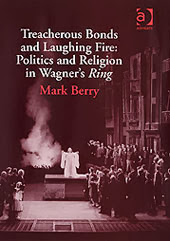Update: We provide a Photo Preview here
I did say I would try to keep you updated. However, given that it is 12 months to first night, news is not "coming thick and fast" - as would be expected. Nevertheless, WNO have very kindly provided a little more detailed information, together with some images of the 2006 revival. I have also included some reviews of the production from 2006.
Sung in German with English surtitles (Welsh in Wales Millennium Centre) First night 19 May 2012.
%20-%20credit%20Bill%20Cooper.jpg) |
| Photo: Bill Cooper |
King Marke Matthew Best
Isolde Ann Petersen
Kurwenal Phillip Joll
Melot Simon Thorpe
Brangaene Susan Bickley
Shepherd Chorus
Helmsman Chorus
Sailor Chorus
Conductor Lothar Koenigs
Original Director Yannis Kokkos
Revival Director Peter Watson
Designer Yannis Kokkos
Lighting Designer Guido Levi
Original Movement Director Kate Flatt
Assistant Designer Muriel Trembleau
Staff Director Carmen Jakobi
Reviews (2006 revival):
Rian Evans
The Guardian, Monday 2 October 2006
"Yannis Kokkos's 1993 staging of Tristan und Isolde for Welsh National Opera suggested an integrity of concept that would not date - and so it has proved. In Peter Watson's revival, its classic lines retained all their clarity while allowing Wagner's ecstatic poem to pervade and invade the senses."
%20and%20Annalena%20Persson%209Isolde)%20-%20credit%20Bill%20Cooper.jpg) |
| Photo: Bill Cooper |
George Hall: The Stage, Tuesday 3 October 2006
"Welsh National Opera revives Yannis Kokkos’ 1993 production of Wagner’s transcendent exploration of love and death in a distinguished performance. Kokkos’ self-designed staging is visually highly effective, presenting the opera’s narrative line with exceptional clarity and truth, and the semi-abstract sets have an aptly timeless quality.
This is another show that displays the world-class credentials of the Welsh company. Wagner fans should move heaven and earth to see this outstanding production as it tours over the next few weeks"
Neil Fisher: The Times, October 2006
"Yannis Kokkos’s production is more about suggestive abstraction. At times, the effect is striking — Tristan’s death, on a giant, protruding slab and lit by an eerie green glow, makes for a striking tableau."
 |
| Photo: Bill Cooper |
12:20:00 am | 0
comments | Read More





































